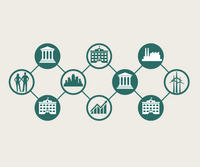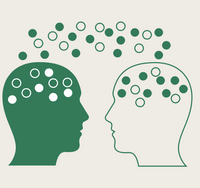Project goals
As part of the DAAD project GreenMuseumHub, an active, international and professional museum network with 3 university and 23 non-university partners from Egypt, Germany and Tunisia will be established and further expanded in the MENA region: At least five museums will be acquired by the end of the project and a cooperation agreement will be concluded between all partners in order to continue the network beyond this.
With digital and physical network meetings as well as the hybrid campus of the GreenMuseumCamps, the network partners have strategies at their disposal to continue the exchange of knowledge even after the end of the project and to ensure successful scientific communication. This sustainable professional knowledge transfer also includes joint, practice-based digital courses, supervised master's theses and internships, which are documented as indicators.
2. exchange of knowledge
GreenMuseumCamps use various innovative formats to generate a hybrid campus for the exchange of specialist knowledge. They are jointly established with the participation of university and non-university partners.
GreenMuseumCamps will take place as a project-specific event format once a year in autumn/winter in a different partner country until the end of 2025. They will be organised alternately by a local university. The other university partners and (if possible) the non-university partners of the host country also take part on site, while the other non-university partners participate digitally. In this way, the GreenMuseumCamps generate a hybrid campus for the professional exchange of knowledge between all network partners.
This hybrid campus is also open physically or digitally to students (not only from the participating universities) and other interested parties. In order to increase the reach and include other interested parties, particularly in the MENA
region in particular, the GreenMuseumCamps are organised in English and French with simultaneous digital translation into Arabic.
In each project year, the GreenMuseumCamps will focus more strongly on a different dimension of sustainability: ecological sustainability (2023), social sustainability (2024) and economic sustainability (2025). The camps consist of changing traditional formats (excursion, workshop, evening lecture), but also innovative participatory, discursive and digital formats (e.g. BarCamp, hackathon/hackday, After Dark Science Night, Junior Science Café, Visitor Journeys), which are jointly determined by the network partners.
3. communication and knowledge transfer
A multilingual, participation-orientated pop-up exhibition in both physical and digital form will be established as a communication strategy, forum for knowledge exchange and reform-oriented knowledge product in order to bring the topic of sustainability into civil society. The science communication of the overall project and a YouTube channel also serve the latter goal.
The pop-up exhibition is jointly conceived and realised by the partner universities (including students from all three countries) and the non-university partners in an open, participatory and multilingual (Arabic, German, English, French) format. The knowledge transfer practised within this framework follows contemporary methods for long-term and intergenerational learning and is committed to Education for Sustainable Development (ESD). The exhibition reflects and communicates the project theme not only within the network, but also addresses a broad public with interactive, participative and discursive formats and a cultural supporting programme.
The pop-up exhibition will be presented at at least three locations in Germany, Egypt and Tunisia (universities, museums) until the end of 2025. It will be shown at other (previously agreed) partner museums after the end of the project. In addition to the exhibition, scientific communication and dissemination of project content to society will take place via other channels for the overall project: physically via the press work of the cooperation partners, digitally via the project website and social media. For this purpose, the university partners provide the non-university partners with prepared reports, which they supplement individually. Finally, project content is documented digitally in a sustainable and long-term manner on the internet for the general public: A digital version of the exhibition will be created, and selected contributions from the GreenMuseumCamps and the Lunch Lectures will be published on the network's own YouTube channel.
The international transfer of knowledge within this project therefore plays a central role. It is based on various network meetings, whereby face-to-face meetings and digital or hybrid formats complement each other, but the latter also increase the reach. It is also becoming increasingly important that key knowledge resources remain publicly accessible beyond the end of the project (here via a YouTube channel or the digital exhibition). In England, it has been discovered that museums are responsible for a quarter of all CO2 emissions in the cultural sector. To counteract this, it is important to collate, share and further develop knowledge: This means the few handbooks and guidelines, the practical experience with best practice examples conveyed via lunch lectures, workshops and a sustainability agent, but also the expertise available among the network partners.



